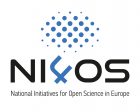The NI4OS-Europe end-user training in Serbia, jointly organized by the University of Belgrade Computer Centre and the Institute of Physics, Belgrade, on 22 April 2021, focused on selected services for researchers included in the NI4OS-Europe service catalogue. Accordingly, the online training targeted researchers as the primary audience, but the audience also included librarians and service providers.
After a brief overview of the EOSC 5b projects (Biljana Kosanović) and the NI4OS-Europe project (Dr. Branko Marović), the audience could hear the latest update about the process of establishing a National Open Science Cloud Initiative in Serbia (Dr. Antun Balaž).
Four services (two generic and two thematic) were presented:
- FINKI Cloud (Dr. Anastas Mišev), cloud computing service based on the OpenStack platform, where each user has a certain quota of resources available (CPU, RAM, disk space) and can use these resources to create one or more virtual machines.
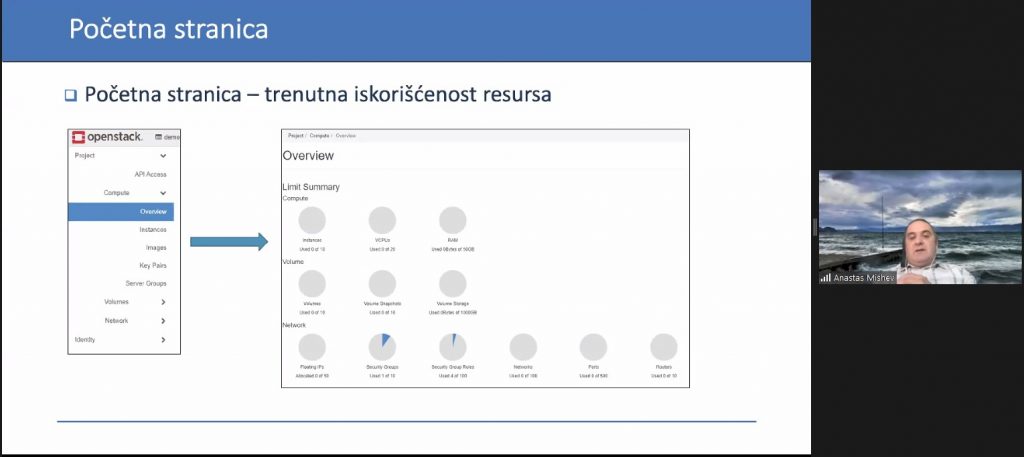
2. Data Analysis Service (Dr. Petar Jovanović) based on the Hadoop platform. It enables the analysis of large datasets and is particularly suitable when it is more convenient to perform analysis on the computers that store the data. The map-reduce approach was presented, where one can define analysis steps so that they are automatically scaled according to the size of the data and the relevant cluster.
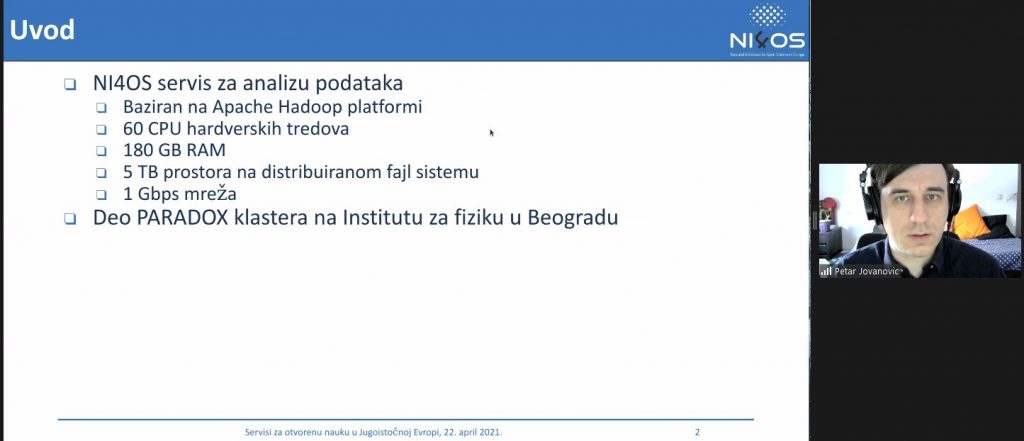
3. Lattice Model Database (Dr. Jakša Vučićević), intended for the exchange of results of calculations and software code relating to the theory of correlated electrons in the crystal lattice. LMDB is a distributed database with a visual web interface that allows automated analysis of large datasets.
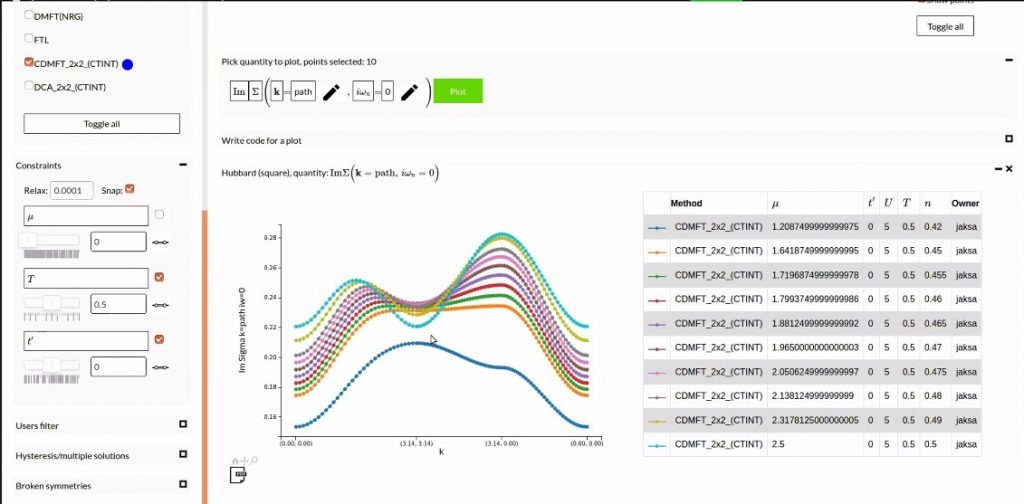
4. ATLAS (Dr. Andreja Stojić), service for contextual analysis of environmental data using artificial intelligence. The service is particularly interesting in the context of global air pollution research.
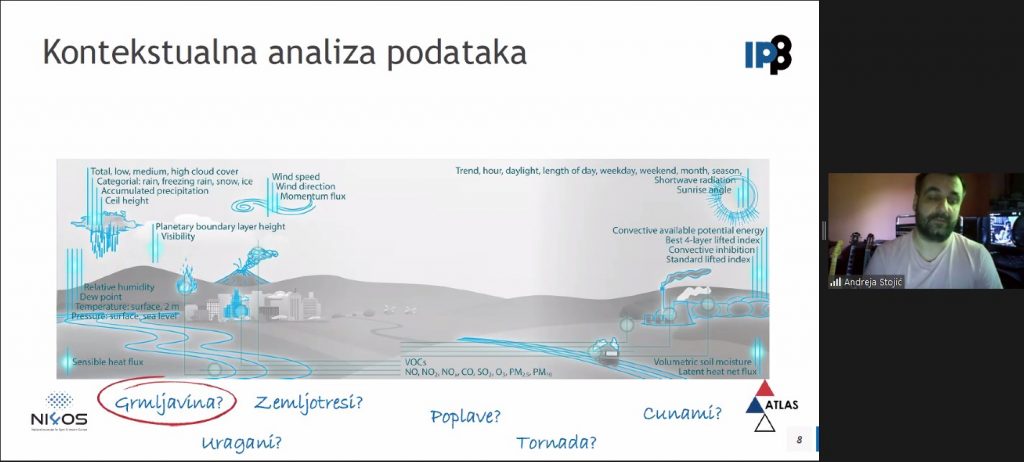
FINKI Cloud is developed by theCyril and Methodius University in Skopje, North Macedonia, whether the other three services are developed by the Institute of Physics, Belgrade, Serbia.
The audience included 40 attendees on Zoom and about 20 participants watching live streaming. Most attendees were researchers (more than 40%). The audience also included librarians, students, representatives of research and e-infrastructures, and science promoters. More than 70% of participants assessed the training as “very informative and well-designed”, while more than 50% said that the services covered were highly relevant for their work.
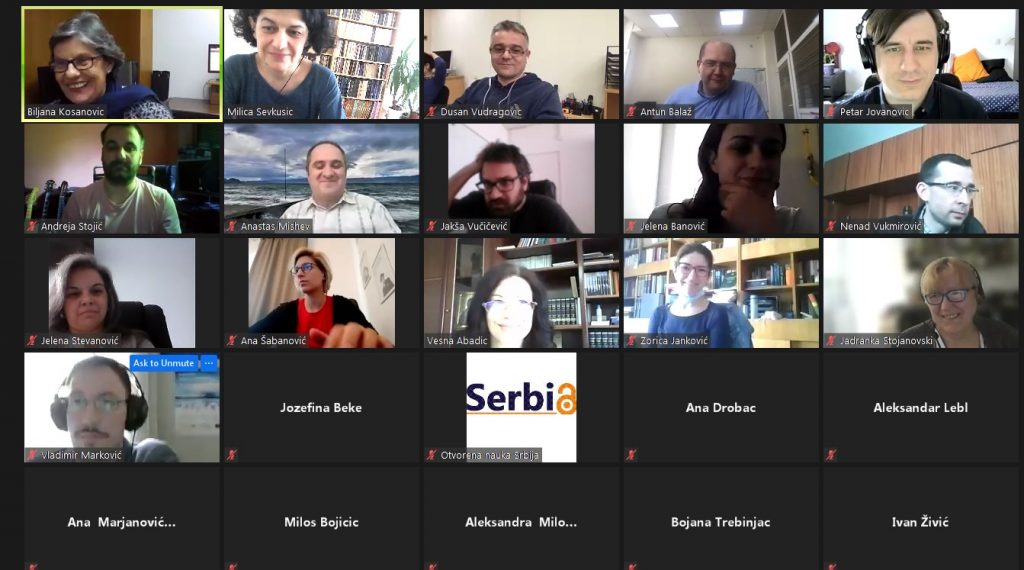
All presentations and video recordings are available on the NI4OS-Europe Training Platform and the Serbian Open Science Portal.
